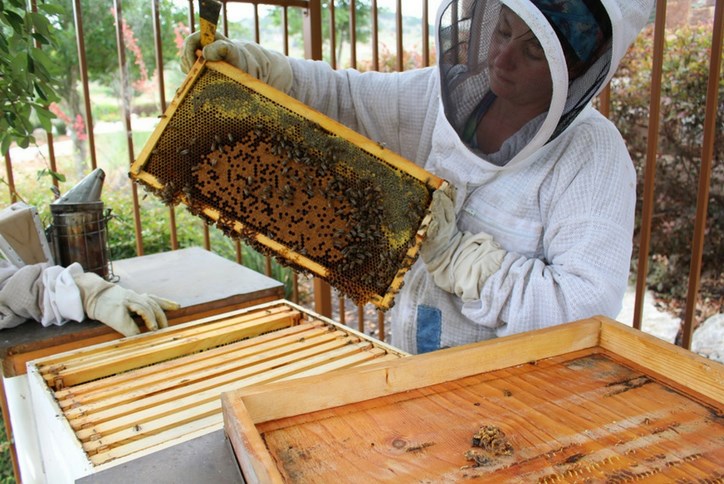
28 September . 2017
Bee Safe: How to avoid getting stung (it’s actually pretty easy)
Home to an estimated 750,000 bees, Sweetwater’s six honeybee hives have been strategically placed far from homes, trails, parks and other areas where residents are out and about.
There still might be times when you come across a bee at Sweetwater, and that’s a good thing, because it means the hives are healthy and the bees are out pollinating.
Bees really don’t want to sting you, and they’ll give you plenty of warning, according to Jennifer Harbour, a beekeeper for Round Rock Honey, which manages Sweetwater’s beehives.
“Our bees belong to the species Apis mellifera, or western honeybee, which is prized for its docile temperament, as swell as its prolific production of honey,” Harbour said.
The best tip for avoiding bee stings is to stay away from the hives, which look like large stacked boxes. Several hives are located near the Sweetwater Club, and several others are perched on a cliff amid the community’s open green space.
“Sometimes bees can act aggressive near their hives, but this depends on a variety of factors, like the weather, the time of year, and the bees’ general mood,” she said. “The best advice is to stay away from the hives.”
If a bee feels threatened or aggravated, it will usually bump you somewhere on your body as a warning.
“If you get bumped, turn around and walk calmly away. Don’t run or flail your arms, because that could cause the bee to get excited and release pheromones that signal danger to the hive. That attracts more bees,” Harbour said.
If you get stung, the same advice applies. “Turn around and walk away calmly. It’s very tempting to want to run or scream, but stay calm and quiet,” she said.
To treat a bee sting, apply an ice pack or other type of cold compress for two hours. If your skin itches, a medicine such as Benadryl can be very helpful. If you feel dangerous symptoms, such as difficulty breathing or swallowing, or swelling of the throat, face and lips, Harbour advises calling 911.
If the bee’s stinger is left in your skin, she recommends scraping it out with a credit card or driver’s license. Don’t try to pull it out with your finger, because the venom sac is still attached, and that will release the remaining venom into your skin.
The bottom line: bee stings are relatively rare, even for professionals. “I can go months without getting stung. When I do, Benadryl is a beekeeper’s best friend,” Harbour said.
For an inside look at bees and honey, consider taking a Honey House Tour from Round Rock Honey.